Home Page › Blog › How to Verify a Service Dog
How to Verify a Service Dog
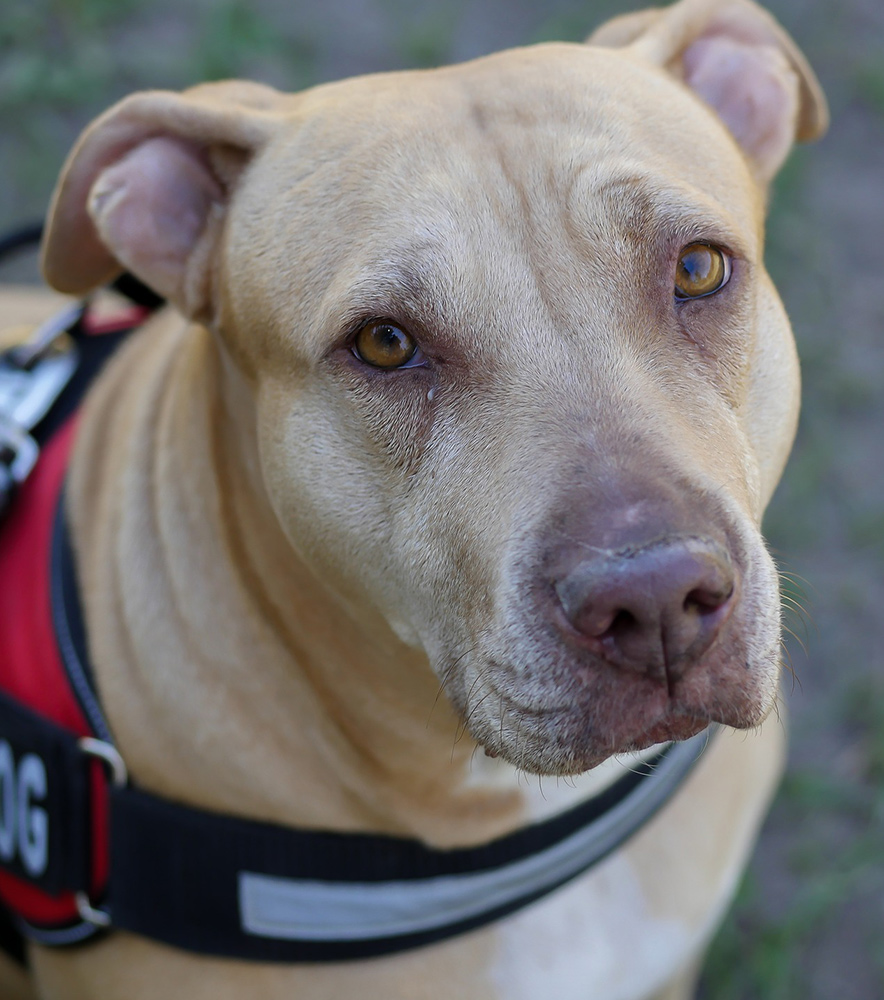
Trying to determine if a dog is a service dog can feel like a game of Twenty Questions, but there’s only really two questions a business owner is allowed to ask:
- Is the dog a service animal required because of a disability?
- What work or task has the dog been trained to perform?
As cryptic and frustrating as that sounds, these parameters are present for good reasons. They protect the personal privacy of the service dog’s handler. In addition, the Americans with Disabilities Act protects the rights and privacy of individuals with disabilities, thus also protecting the right of a service dog to perform their task. In short, owners of service dogs have federal rights. Because of these federal protections, the public should be aware of the appropriate way to verify a service dog.
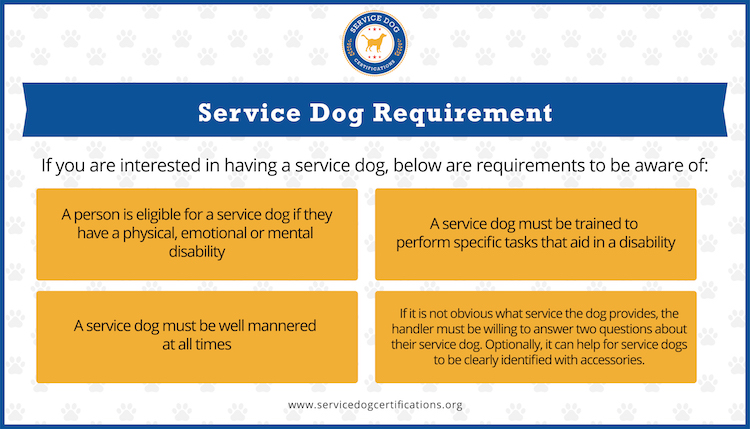
What is a Service Dog?
According to the Americans with Disabilities Act (ADA), a service dog is trained to complete a task directly relating to their owner’s disability. A service dog is not a pet but a way for a disabled person to overcome their disability. Because service dogs affect their owners’ health and welfare, they’re allowed into areas where pets aren’t typically welcome. Some examples of service dog tasks are:
- Alert people with hearing impairments.
- Identify impending seizures.
- Help people with mobility problems.
What Can You Ask a Service Dog Owner?
As stated prior, there are two questions a business can ask a service dog owner when trying to verify a service dog:
- Is the dog a service animal required because of a disability?
- What work or task has the dog been trained to perform?
Though other questions may seem relevant, they can be considered intrusive and discriminatory. Here are a few examples of questions that may seem pertinent but infringe on privacy or are discriminatory.
- What kind of disability do you have?
- Can your dog demonstrate what it does for you?
- Do you have documents to prove that your dog is a service dog?
- Why does that dog need to be with you in here?
- Would you be okay without the dog with you?
The ADA laws do not require service dogs to be registered, certified, or wear identifying gear such as a vest or ID tag. Therefore, asking for identification or documentation would not establish whether a dog is a service dog.
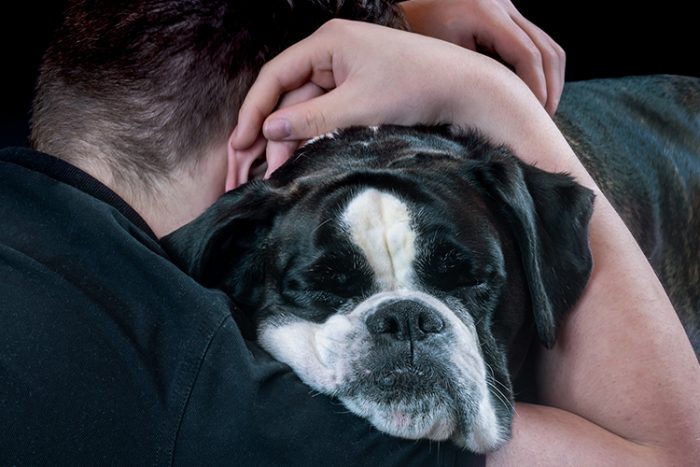
Where is a Service Dog Allowed?
Federal laws allow a service dog to go wherever their owner goes. This includes hotels, stores, movies, restaurants, airlines, and anywhere else typically accessible to the public. For example, service dogs can live with their owners in “no-pets allowed” housing due to the federal Fair Housing Act. Service dogs can also travel with their owners in the cabin of airplanes because of the Air Carrier Access Act. These federal laws also exempt service dog owners from any fees for housing, lodging, and travel typically applied to pets.
When Can You Ask a Service Dog to Leave?
Almost all service dogs are well-behaved and exceptionally trained, but they’re not always perfect. There are instances when service dogs may be removed from the area. The U.S. Code of Federal Regulations states that there are two reasons a service dog can be asked to leave the premises:
- If the service dog’s owner is not able to command the dog, and the dog is out of control.
- If the service dog isn’t properly housebroken or if the dog urinates or defecates in an inappropriate area.
If a service dog does not behave appropriately in public and is required to leave the area for any of the above reasons, the dog’s owner must be allowed to remain without the dog. If the service dog damages property, the business may charge the service dog owner for cleaning after the fact. Surcharges that usually apply to pets don’t apply to a service dog. Additionally, businesses can’t segregate service dogs and their owners from the rest of their patrons.
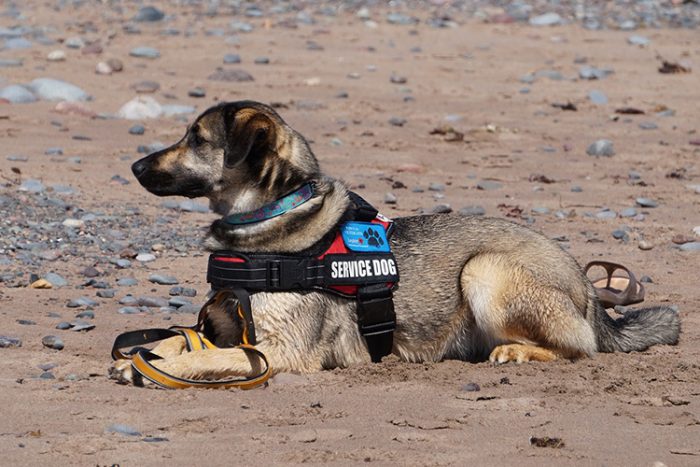
Misrepresentation of Service Dogs
Although there is no federal law that penalizes fraudulent service dog owners, many states have laws against the misrepresentation of a service dog. Nevertheless, people still attempt to pass their pets as service dogs. Service dogs undergo hundreds of hours of training.
Well-trained service dogs are usually not disruptive, unruly, or aggressive. When interacting with the public, service dogs remain focused on their work. They receive training to avoid interactions with others unless necessary because distractions can be dangerous for their owners.
Service dogs do noble and vital work for people who have disabilities. It’s essential to verify service dogs correctly, to adhere to federal laws, and to respect the work that they do.
About the Author: The writing team at Service Dog Certifications is made up of folks who really know their stuff when it comes to disability laws and assistance animals. Many of our writers and editors have service dogs themselves and share insights from their own experiences. All of us have a passion for disability rights and animals.
Latest Posts

How to Bring a Service Dog to Disneyland
Trained service dogs are more than welcome to join their handlers at Disneyland. In this guide, we’ll explain Disneyland’s policies and give practical advice for bringing a service dog to Disneyland for the first time. Disneyland’s Service Dog Policies The Magic Kingdom is happy to welcome trained service dogs across most park locations! They kindly […]

Read More

Can Dogs Eat Tomatoes?
Yes! Dogs can safely enjoy tomatoes, but there are a few risks to be aware of so you can feed your dog responsibly. Fully ripe tomatoes (without the stems and leaves) can actually have nutrients that are good for your pup. Tomatoes have chlorogenic acid, an antioxidant that can have anti-inflammatory effects in cells. They’re […]

Read More

Can a Primary Care Doctor Write an ESA Letter?
Your family doctor, also called a primary care physician (PCP), can write a letter recommending an emotional support animal. We’ll explain what legally gives them that ability and explore what better options might be available for you. Why are Physicians Able to Write an ESA Letter? To turn your pet into an emotional support animal, […]

Read More





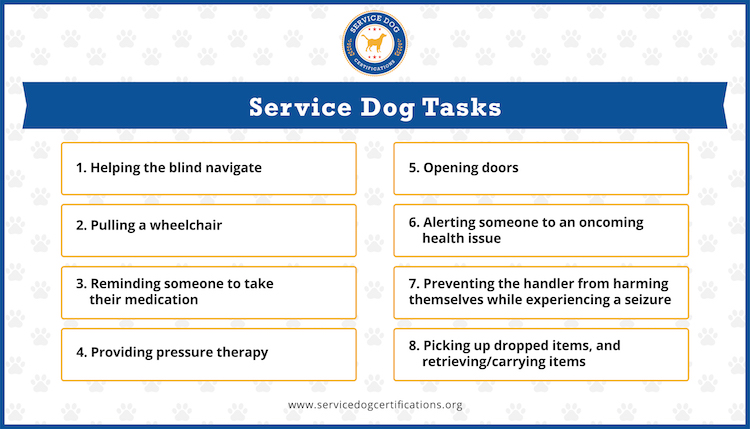

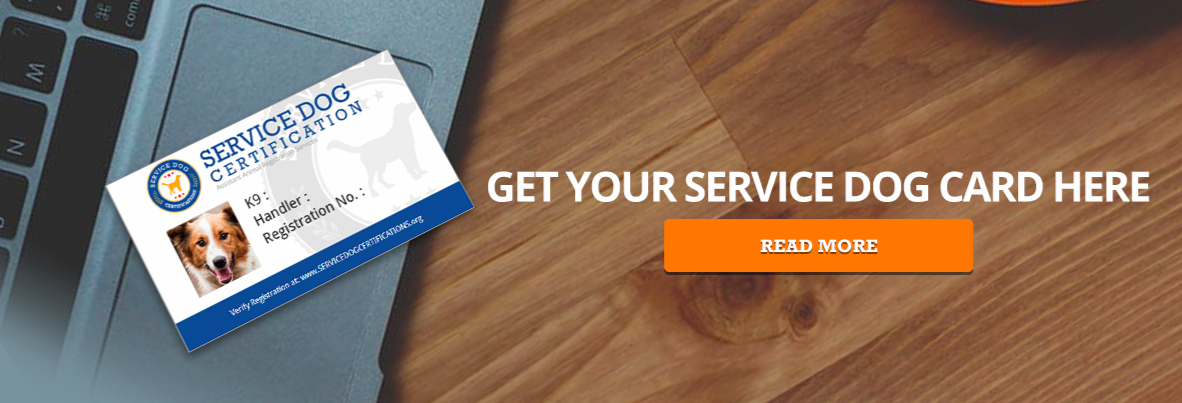

My dog has flown on Alaska Airlines 3 times. She sits on my lap or lays on the floor. She is very helpful to me as I have severe hearing loss. I am 82 years old. She is a 17 pound Schnauzer and is 4 years old. Her name is Ziva Gross.
Based on the two allowable questions a business owner can ask about a service dog. How can a business owner determine if the answers given are acceptable? Or what if the patron refuses to answer the questions? What can be our course of action?
The patron must be able to the answer the questions if they want to be granted access with their service animal in a no-pets location. The only time the questions are not appropriate is if the disability related need for the service dog is obvious. Individuals are expected to act ethically and truthfully when answering the questions. Falsely representing that you own a service dog is punishable in many jurisdictions.
THANK YOU FOR ALL YOUR SERVICES.